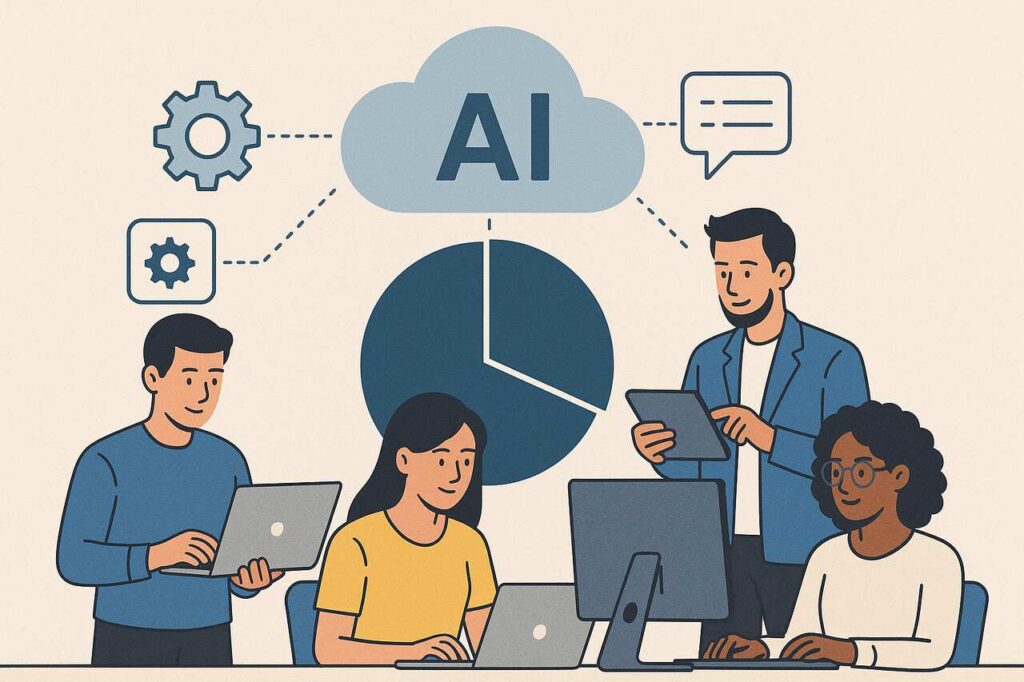New York — Artificial intelligence has quickly moved from experimental use to a workplace necessity. According to a new Google DORA (DevOps Research and Assessment) study, 90% of technology professionals worldwide now use AI at work, marking a 14% increase compared to last year.
AI Becomes Core to Tech Work
The survey, based on responses from 5,000 global tech professionals, shows that AI is being applied in day-to-day tasks such as writing, editing, and troubleshooting code. Ryan J. Salva, who leads Google’s developer tools team, noted that AI has become inseparable from Google’s own engineering workflows.
“If you are an engineer at Google, it is unavoidable that you will be using AI as part of your daily work,” Salva said in an interview.
Google itself has embedded AI into documentation, coding assistants, and code editors, and it is pushing further with products like Gemini Code Assist. Competing platforms from Microsoft, OpenAI, Anthropic, Replit, and Anysphere are fueling an increasingly competitive market for AI-assisted development.
Adoption Meets Skepticism
Despite rapid adoption, not all developers fully trust AI output. The study found that:
- 46% of professionals “somewhat” trust AI-generated code
- 23% trust it “a little”
- 20% trust it “a lot”
When it comes to performance, 31% said AI slightly improved code quality, while 30% reported no impact at all.
Salva suggested that AI is currently between stage three and four of a five-point scale of maturity: advanced enough to troubleshoot across systems but still dependent on human oversight and safety checks.
A Shifting Job Market for Developers
The rise of AI comes at a turbulent time for tech employment. Entry-level opportunities are shrinking, with software engineering job postings down 71% on Indeed since February 2022. Meanwhile, data from the New York Fed shows that recent computer science and engineering graduates face higher unemployment rates than graduates in fields such as English or art history.
Graduates remain cautiously optimistic. Julio Rodriguez, a recent computer science graduate, told CNN he applied to over 150 jobs before securing a role—highlighting how competitive the field has become.
The Hype and the Reality
Salva acknowledged that AI adoption is partly driven by excitement and industry buzz.
“Software development is a fashion industry… We’re all chasing the next style of jeans,” he explained. “And when there’s that much conversation about it, everyone’s just excited to try the new thing.”
Still, experts believe AI will ultimately streamline repetitive tasks while leaving critical aspects of software development to human engineers. The challenge now lies in balancing efficiency, reliability, and trust in an era where AI is no longer optional but integral to tech work.
Read also:
S&P 500, Nasdaq, and Dow React to U.S. Tariffs, Crypto Surge, and Global Market Shifts

